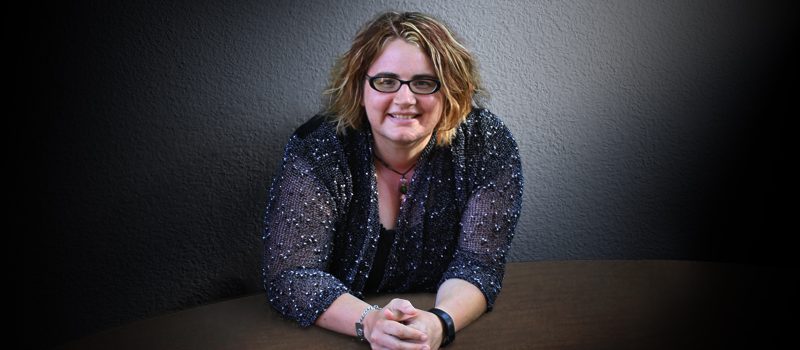Kameron Hurley: Plotting the Way Forward
 In ancient Rome, they marked the new year in March, a time which has always made far more sense to me than a dark, frigid day in January. March is when we get the first breath of spring, when winter’s grasp begins to ease, and we realize that we have survived another miserly winter season.
In ancient Rome, they marked the new year in March, a time which has always made far more sense to me than a dark, frigid day in January. March is when we get the first breath of spring, when winter’s grasp begins to ease, and we realize that we have survived another miserly winter season.
After a very dark COVID-19 winter surge, I have emerged bleary-eyed into a new year and a new spring. As I am immuno-compromised, I was in an early group for vaccination against the disease here in Ohio (though it was for me, as it’s been for many, a Hunger-Games-esque experience of calling, clicking, signing up at multiple places, calling again, clicking, etc. until I was able to secure both appointments, because, while the vaccines are a scientific miracle, the administration of same was an American mess).
By the time you read this, spring will have arrived to the Northern hemisphere in earnest. Now, however, I have only the frustratingly tantalizing hints of its arrival: hardy daffodil shoots pushing up through the soil; a bubbling, ice-free solar fountain; the inevitable return of mosquito larva to the pond (always the first arrivals!); a flock of geese honking away as they return from the south.
After a year of hard lockdown and a particularly grim winter, I find myself impatient for the arrival of full spring and early summer color. The days are still brisk; the nights are still cold. I long to enjoy a few early blooms. I have taken to hacking the rose bushes and pruning back the fruit trees. Spreading fertilizer. Doing some pond maintenance. Lifting iris rhizomes to ensure they have enough light to flower (I inevitably worry I’ve planted them too shallowly, but always plant too deep). Anything to get me outside and working with my hands under the cold, brilliant light of winter’s end and spring’s beginning.
There is a tendency this time of year to spend one’s time dreaming of what will be, and getting frustrated with every frosty morning because that last frost date has yet to pass. Yet I was reminded by a recent gardening program that one should not rush through this time of year. It’s a slow process, waiting for the end of winter – the end of a global pandemic and its restrictions, the beginning of a new and uncertain year – and we should cherish the time it gives us to pause, reflect, and work toward setting the foundations for our garden – and our lives – in the coming year.
There is much to ponder, on both fronts.
There’s a collectively urgency to “go back to normal” as soon as possible, as vaccines roll out across the country and the globe and the ground warms. But “normal” is a shifting target. After the last year, our world will not be quite the same, just as the garden is never going to be the same from year to year. Consider the perennial plants that unexpectedly die off during the winter, the pots that crack, the perennials that now shade out your irises and must be moved, the trees that will leaf out so well this year that only hostas will grow beneath them, and of course the new garden beds you begin to prepare and mulch and border.
Your garden will never be the same, year-to-year.
Nor will life after this pandemic.
I have been easy on myself this last year, spinning my wheels with various writing projects that failed to interest me and biding my time reading about both gardening and writing far more than I’ve been doing it. But as the seasons turn and the pandemic environment changes, I have found a renewed sense of interest in both writing and gardening; in creating something brilliant from all the cold horror.
I have written often about how I am unable to process and write through trauma until after the worst has passed, and while there are many unknowns ahead, my instinct and the prevailing evidence thus far suggests that we have seen the very worst of the COVID-19 surge, and are about to see what a post-COVID world looks like. We are about to help shape it.
What I can be certain of is that the world isn’t going to be the way it was, no matter how desperately many wish it. But instead of mourning that world, I find myself looking ahead and anticipating what it may be like. There were many things about that world that sucked. Many things I won’t miss.
I won’t miss commuting – that constant rush between here and there. I won’t miss the frenetic worry about turning down various events or social invitations that involve milling through crowded airports that treat me like chattel. I won’t miss getting sick more often.
After all, consider how many fewer infectious diseases were making the rounds due to COVID protocols. Maybe shopping malls will finally – FINALLY! – be finished for good. Maybe we will re-think our crowded buildings in crowded cities that have few to no greenspaces. Maybe remote work will finally – FINALLY! – make it possible for people to leave big cities without sacrificing big city jobs. And hey… many restaurant designers have declared those annoying communal seating arrangements at Chipotle and its ilk totally dead.
I’ll take it.
Other changes will be scientific in nature. I look forward to seeing what we can do with advanced mRNA technology. Now that it’s been shown effective on a large scale, I expect it to get funding for more applications, some of which – like its use in cancer treatment – may completely transform the world.
I anticipate that mask-wearing will be more prevalent and acceptable in the US, even after all the mandates are dropped and COVID deaths zero-out. I also won’t miss greeting strangers with handshakes, especially after learning this last year how many people weren’t actually washing their hands after going to the bathroom (!!). I myself am also hesitant about the idea of ever going to a massive convention with tens of thousands of attendees again. We will certainly continue to see more virtual components to many mass gatherings and, for an introvert like me, that sounds fabulous.
There will, of course, be other horrors and traumas, which I can’t help thinking about even as we begin to see this one start to turn. There will be other pandemics. And the US political situation is harrowing, balancing on a knife’s edge between democracy and cult-based fascism. There’s never going to be a perfect world. Only a different one.
But here, today, as spring teases my senses and I can see the end of the pandemic on the horizon, I choose to enjoy this particular moment, this pause between the darkest winter I’ve ever seen in my life, and the promise of something else, something different – and possibility something much brighter – within our grasp.
That is what this time of year is for: rebirth and renewal, not only of the garden, or the world, but of ourselves, and our hopes for the future. That is why March will always feel to me like the true beginning of the new year. It’s when we celebrate surviving the very worst the world could throw at us, and plot a new way forward.
Kameron Hurley is the author of The Stars are Legion and the award-winning essay collection The Geek Feminist Revolution, as well as the God’s War Trilogy and The Worldbreaker Saga. Hurley has won the Hugo Award, Kitschy Award, Locus Award, BFA Award, and Sydney J. Bounds Award for Best Newcomer. She was also a finalist for the Arthur C. Clarke Award, the Nebula Award, and the Gemmell Morningstar Award. Her short fiction has appeared in Popular Science Magazine, Lightspeed Magazine, and many anthologies. Hurley has also written for The Atlantic, Bitch Magazine, The Village Voice, and Entertainment Weekly. She posts regularly at KameronHurley.com.
All opinions expressed by commentators are solely their own and do not reflect the opinions of Locus.
This article and more like it in the April 2021 issue of Locus.
 While you are here, please take a moment to support Locus with a one-time or recurring donation. We rely on reader donations to keep the magazine and site going, and would like to keep the site paywall free, but WE NEED YOUR FINANCIAL SUPPORT to continue quality coverage of the science fiction and fantasy field.
While you are here, please take a moment to support Locus with a one-time or recurring donation. We rely on reader donations to keep the magazine and site going, and would like to keep the site paywall free, but WE NEED YOUR FINANCIAL SUPPORT to continue quality coverage of the science fiction and fantasy field.
©Locus Magazine. Copyrighted material may not be republished without permission of LSFF.









Very nice musings.
I have an old friend who is a senior VP at a Fortune 20 drug distributor who told me many months ago that the incredible effectivity of the mRNA vaccines may be a game changer for many many problems.
I got my 2nd vaccine (Moderna) April 1, so 10 days until I’m cleared to …??? I so miss playing live music. I was going to defer restarting this til December, but, as of, April 15, I can’t get The COVID (95%) & I can’t spread The COVID, so ???
———
I was just thinking yesterday, the year begins on the Vernal Equinox.
Spring is childhood, age 0-21 (1 pass thru the 22 Tarot Trumps).
Summer is adulthood, age 22-43.
Fall is maturity, age 44-65.
Winter is old age, 66-88.
My mom died at 64, my dad at 80. I’m almost 70, health very good (knock on wood) – it would be completely exemplary w/o the substance abuse. I’d been targeting 80 yrs, to match my Dad. But, he was much less healthy than I am, maybe I’ll target a full 4 cycles – 1 Tarot Year! (Knock on wood, No Jinx).
Ha ha, gotta love that superstition! My Deutsch-speaking maternal grandma Fidelia Boemker had a superstition for everything. LOL, I count birds & enter them in eBird.org, per Grandma Dee NEVER COUNT BUZZARDS!!! Sorry, Grandma, I count both Turkey Vultures & Black Vultures. ;->